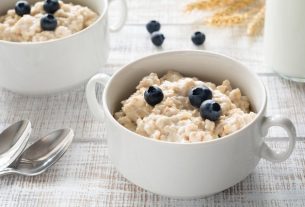Glutamine is the amino acid that is present in the greatest quantities in the body, as it is produced naturally through the conversion of another amino acid, glutamic acid. Furthermore, glutamine can also be found in some foods, such as yogurt and eggs, for example, or can be consumed in the form of a nutritional supplement, found in sports supplement stores.
Glutamine is considered a semi-essential amino acid, since in stressful situations, such as illness or the presence of a wound, it can become essential. Furthermore, glutamine performs several functions in the body, mainly related to the immune system, participates in some metabolic pathways and favors the formation of proteins in the body.

List of foods rich in glutamine
There are some animal and vegetable glutamine sources, as shown in the following table:
What is glutamine for?
Glutamine is considered an immunomodulator, as it is used as a source of energy by the cells of the muscles, intestine and immune system, stimulating and strengthening the immune system.
Some studies have shown that glutamine supplementation speeds up recovery and reduces the length of hospital stay for people who are post-operatively, in critical condition or who have suffered burns, sepsis, have multiple trauma or are immunosuppressed. This is because this amino acid becomes essential during a situation of metabolic stress, and its supplementation is important to prevent muscle degradation and stimulate the immune system.
Furthermore, supplementation with L-glutamine is also used to maintain muscle mass, as it is capable of reducing the degradation of muscle tissue after exercise, it stimulates muscle growth because it favors the entry of amino acids into muscle cells, helping in recovery after intense workouts and helps in recovery from excessive athletic training syndrome, a situation characterized by decreased plasma glutamine levels.
Learn more about glutamine supplements.
Bibliography
- CRUZA Vinicius, MACEDO Marcelo et al. Glutamine: Metabolism and Immune Function, Supplementation and Clinical Translation. Nutrients. 10. 1-31, 2018
- U.S DEPARTMENT OF AGRICULTURE. Food Data Central. Available at: <https://fdc.nal.usda.gov/index.html>. Accessed on 03 Feb 2020
- TALBOTt, Shawn M; HUGHES, kerry. Dietary Supplements for Healthcare Professionals. 1st Edition. Rio de Janeiro: Guanabara Koogan, ltda, 2008. 204-205.

Sign up for our newsletter and stay up to date with exclusive news
that can transform your routine!
Warning: Undefined array key "title" in /home/storelat/public_html/wp-content/plugins/link-whisper-premium/templates/frontend/related-posts.php on line 12
Warning: Undefined array key "title_tag" in /home/storelat/public_html/wp-content/plugins/link-whisper-premium/templates/frontend/related-posts.php on line 13





